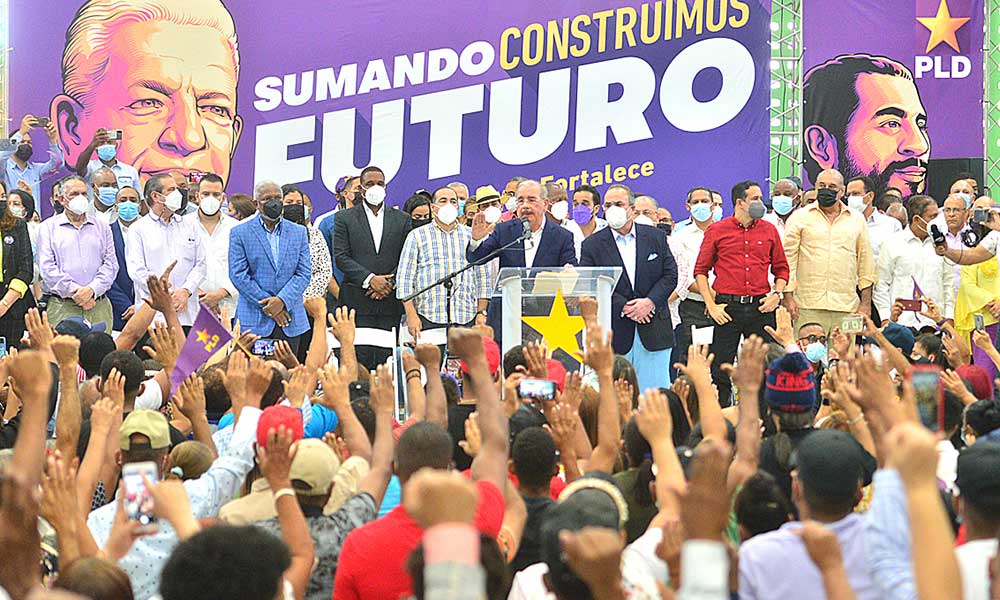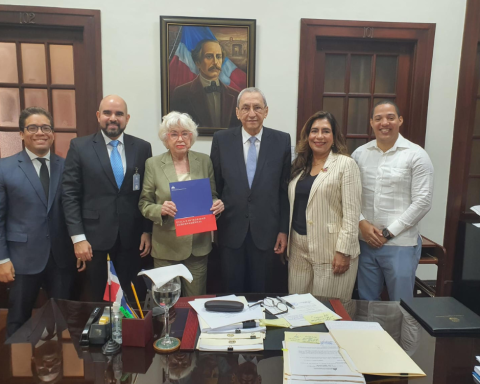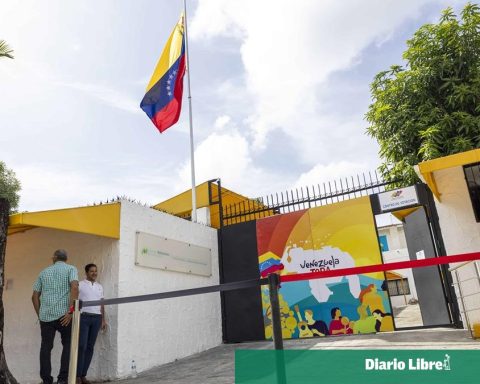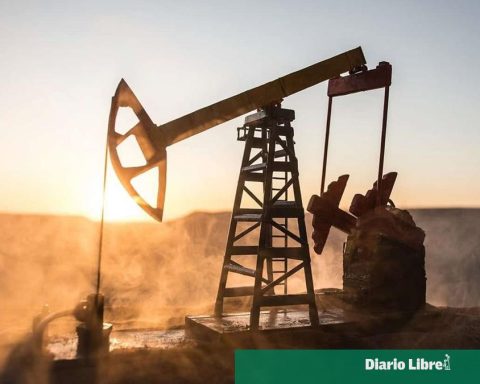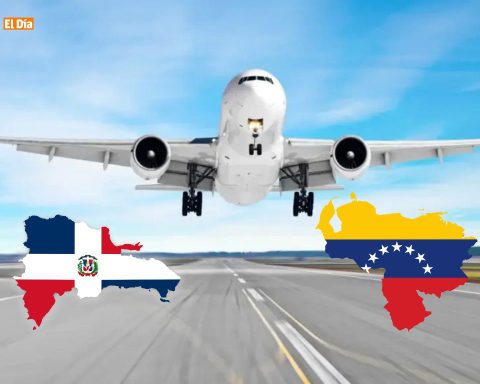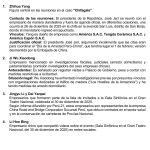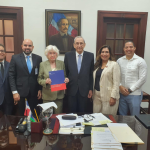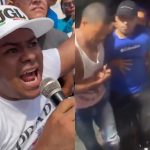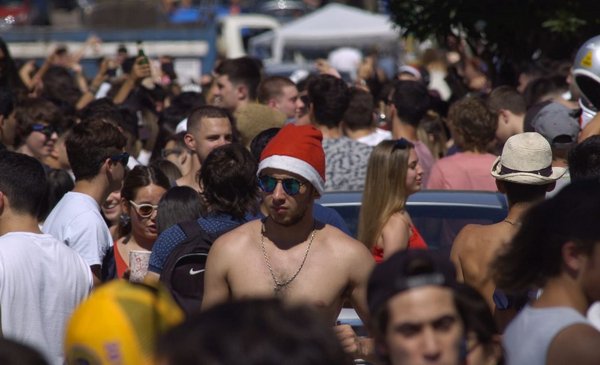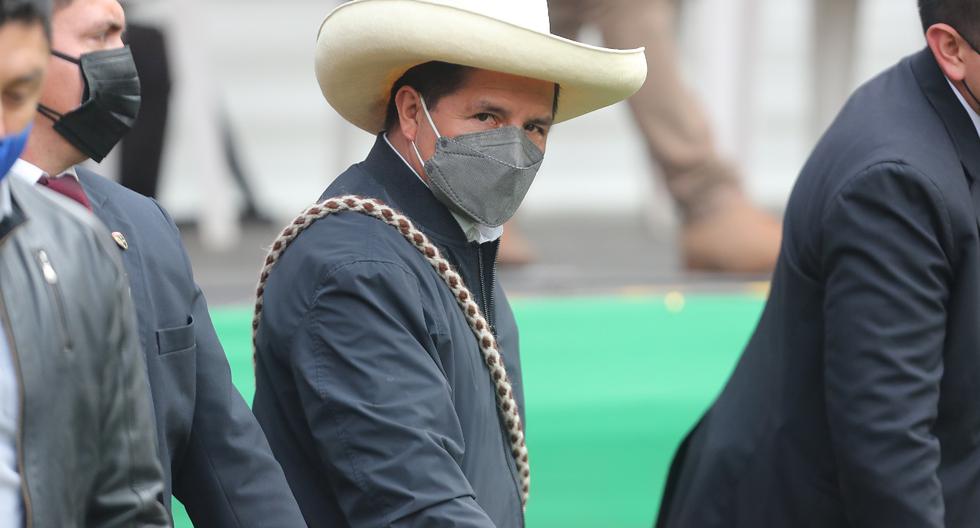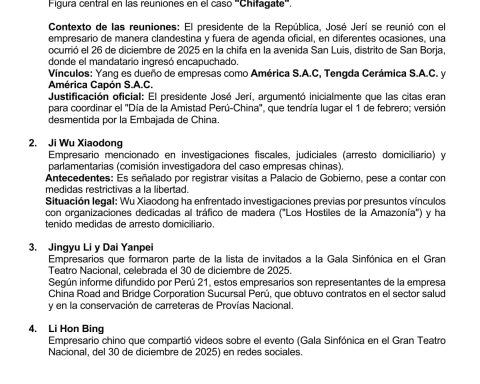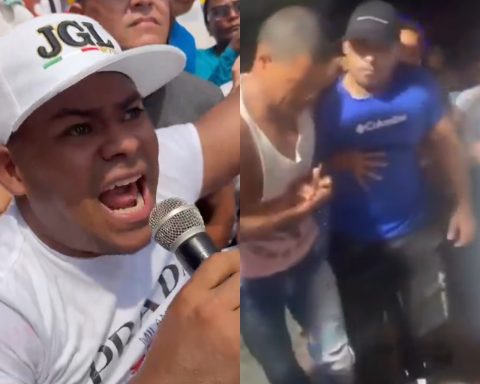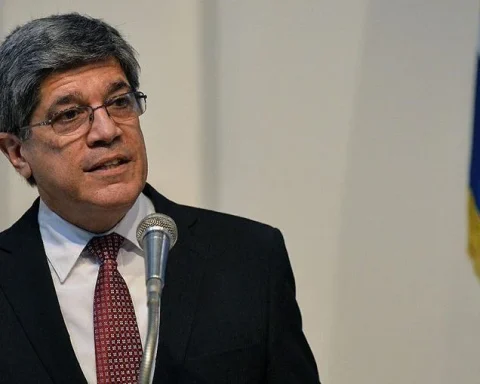Resistance of the PLD will be tested; PRM with renewal on the agenda and FP continue to strengthen its structure
The ruling Modern Revolutionary Party (PRM), as well as the opposition Fuerza del Pueblo (FP) and the Dominican Liberation Party (PLD) have enormous challenges for 2022.
The PRM has the challenge of successfully and quietly achieving the renewal of its authorities and at the same time dealing with a political opposition that looks like it will be more aggressive in attacks on the government. Meanwhile, the FP has the challenge of continuing to grow and strengthen its national structure, while the PLD will have to define its defense strategy well before the mention of its leader and president, Danilo Medina in cases of corruption, and at the same time define the mechanism for choosing the presidential candidacy that is on the agenda for 2022, without this process becoming a new source of division.
The Dominican Revolutionary Party (PRD) announced that in 2022 it will begin a stage of growth, but the organization that only eight years ago was the main political force in the country, needs more than that to remain as the majority party, a condition that it managed to maintain with difficulty. from the result of the 2020 elections.
PRM, renewal and party-government.
By requirement of the Law of Political Parties, organizations are obliged to renew their authorities every four years and the PRM would correspond in April 2022, when the period for which José Ignacio Paliza, president, and Carolina Mejía were elected, will be fulfilled. general secretary, as well as other holders of internal positions.
The PRM has to submit to the approval of the national assembly the recently modified statutes of the organization and that meeting would have it on the agenda in January of next year.
However, the organization has not defined the mechanism for the election of the authorities or formed the organizing national commission. On this last point there are leaders who begin to pressure the Executive Directorate.
The issue of the renewal of authorities could generate friction in the PRM because Guido Gómez Mazara and Eddy Olivares aspire to lead the organization. The latter has argued that officials should not hold internal positions in the organization and that those who aspire should resign from positions in the State if they occupy any.
José Paliza, president of that organization and administrative minister of the Presidency, has been activating in the PRM at the national level although he has not said if he aspires to continue in office. Gómez Mazara has been organizing meetings with the members of the organization and has warned that the new authorities must be elected by universal vote.

They have also had dissident speeches Ramón
Alburquerque and Rafael (Fafa) Taveras. The latter sent a communication to the Executive Directorate demanding that the national organizing commission of the convention be integrated as soon as possible to choose the authorities.
Leaders such as César Cedeño have stated that the organization will remain united as its two main leaders, President Luis Abinader and Hipólito Mejía, guarantee internal cohesion.
The version has circulated in the PRM that there is the possibility of choosing the new authorities through an assembly of delegates. This year, the organization managed to reduce complaints about government jobs that the base of that party had.
The official party announced that next year it will reopen its list for the registration of new militants. Its membership, according to the document deposited in the Central Electoral Board (JCE) is greater than one million 800 thousand members.
PLD in resistance test
The PLD has the challenge of resisting the blows it receives at the highest level after the mention by the Public Ministry of its leader and former president Medina in cases of corruption. As revealed by the president of the Chamber of Accounts, Janel Ramírez, there are more audits that have not yet been published and that could have criminal implications.
The 2021 for that party, which recently celebrated its 48th anniversary, concludes on the defensive in the face of accusations of corruption by leaders and close associates of former President Medina.
The organization will have to fine tune so that its defense strategy does not have a contrary effect and further affect the party brand. In its initial response, the PLD leadership has said that the government is judicializing the policy and called on the militancy to remain vigilant when required to do so.
Another important challenge for the organization is the election of the presidential candidacy, which that party anticipated that it will do in October of next year in order to be able to compete against two other political forces that already have definite candidacies, such as the PRM that it assumes fact that President Luis Abinader would present himself for the repostulation and the FP, which has Fernández.
Candidates for the presidential candidacy of the organization have pending the signing of an agreement that will establish the method of election of the presidential candidacy.
The Political Committee appointed a commission for these purposes and has reached consensus on some points, but there are differences on the method of choice. They aspire to the candidacy of the PLD Margarita Cedeño, Abel Martínez, Francisco Domínguez Brito, Karen Ricardo and Maritza Hernández.
This year, the PLD successfully concluded the process of renovating its structures, which included the election of the heads of the different secretariats. Medina led several swearing-in members and deposited a roll of more than 1,700,000 members.
Another no less important challenge that this party has is stopping the departure of leaders to other organizations, especially to the FP and lately they have also emigrated to the PRM.
Recently, the secretary general of the PLD, Charlie Mariotti, denounced that the government has a plan to “win over” mayors from the opposition parties, supposedly with promises to solve problems in their demarcations.

VET must continue to grow
The FP, led by Leonel Fernández, recently presented its first list of militants before the JCE with almost 650 thousand members, a figure that is below the goal of registering one million members announced by that organization. However, it is a higher number than the vote he obtained in the 2020 elections in which he obtained 365,230 votes, including the allies.
This party also has the challenge of finishing building its national structure and defining the moment of the election of its authorities, since the ones it has now are provisional. That organization had announced that this year the Manolo Taváres Justo electoral Congress would hold, but everything indicates that this process will not take place, not even in 2022.
The provisional authorities of the organization are Fernández, president and Antonio Florián (Peñita), secretary general. Recently, eight of the nine senators that his bloc currently has were included in the Political Directorate.
The opposition party achieved important political victories this year, such as increasing its number of deputies due to the resignation of several PLD legislators. Likewise, it won the battle against the Central Electoral Board (JCE) for the category of majority party that the JCE initially denied it.
However, it has received blows such as the departure of the mayor of San Juan de la Maguana, Hanoi Sánchez, who was sworn in at the PRM. A fundamental challenge for this organization is to prevent its leaders from migrating to other parties, especially the ruling party.
For the FP, the departure of leaders would be a devastating blow for its growth because it is a party under construction that needs to send a message of strength to the electorate.
The FP is not only fighting the possibility of conquering power in 2024 against the PRM, but at the same time it is fighting for the same opposition space with the purple party.

The PRD faces a challenge to retain majority status
The main challenge of the Dominican Revolutionary Party chaired by Miguel Vargas is working to maintain the majority status that he managed to retain with great difficulty. Vargas has announced a growth process for that party for 2021, but has not yet explained how he will do it. The PRD went from being the most voted party (without alliances) in the 2012 elections to having serious difficulties in maintaining 5% in 2020, that is, eight years later. Vargas, as the leader of that party, has not defined the role he will play in the 2020 elections in the sense of whether he will participate with his own candidacies or will participate in alliance with another party. The PRD in the last elections was allied to the PLD.
